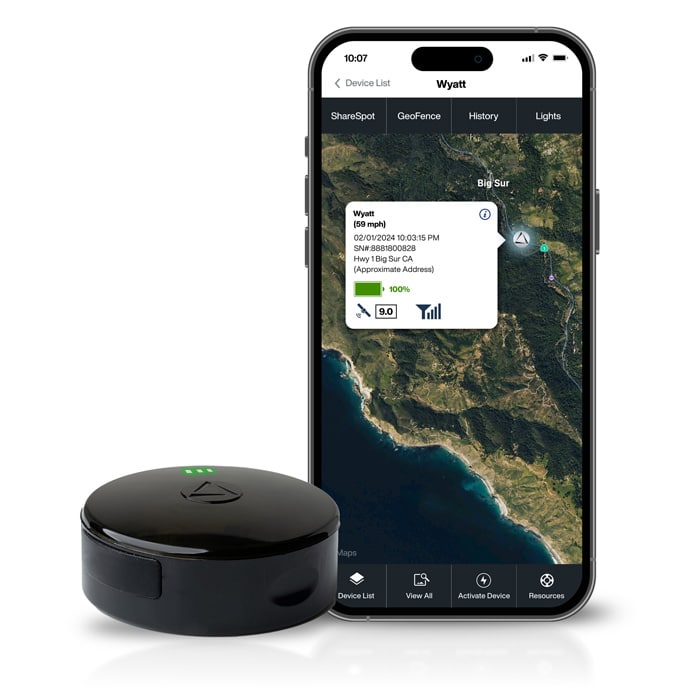The Vision Behind the LandAirSea 54: Innovation Against the Odds
In 2014, LandAirSea introduced the Flashback, a compact, battery-powered GPS tracker with a built-in magnet. It was a passive device that recorded ...

Whether you’re managing inventory, monitoring fleet assets, or ensuring your loved ones arrive safely, we offer tailored GPS tracking solutions designed to meet your specific needs.



With 30 years of innovation, LandAirSea is the trusted provider of GPS tracking solutions for companies and individuals worldwide. Our advanced, reliable GPS device range leads the market and stands out by providing quality, innovation, and flexibility.
For businesses, LandAirSea's embedded, custom, and white-labeled solutions integrate GPS tracking devices into your products seamlessly.